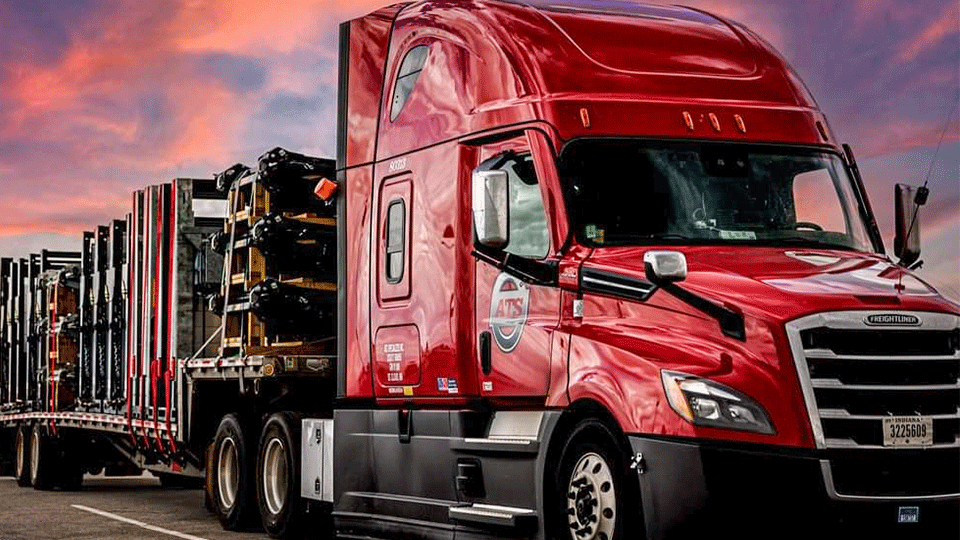
The importance of your work is undeniable; your company’s supply chain is crucial to its success. Maintaining a healthy set of practices and a robust network of transportation partnerships is your job. And, as any other logistics professional will tell you, planning, education and relationships are your greatest allies in this field.
Failing to deliver a single shipment can cause ripple effects for your business, damaging your customer relationships and reputation. That’s why it’s so important to set realistic expectations with your transportation providers.
With the correct set of expectations — for when freight can be picked up and how long it will take to deliver — you can plan accordingly, accurately communicating with your consignees/customers.
However, with so many variables at play, aligning your needs with your carrier(s)’ capabilities can be challenging.
As a transportation company that has been in operation since 1955, here at Anderson Trucking Service (ATS), we’ve seen the disruption unrealistic expectations — from one party or another — can cause to a freight shipment.
When it comes to setting delivery and transit time standards with your providers, the transportation industry uses the term “reasonable dispatch.” In this article, we’ll explain what reasonable dispatch means and what you should realistically expect from your carriers going forward.
What is Reasonable Dispatch?
In the transportation industry, reasonable dispatch is the standard of performance a transportation provider can realistically be held to over a specific period of time — as stated on the shipment’s bill of lading (BOL) and/or order for service.
Reasonable dispatch standards are developed based on the time similar shipments — those of comparable sizes, lanes and times of year — took to complete.
Reasonable dispatch parameters exclude carriers from liability when a Force Majeure (an act of God, an act of war, a significant weather event, etc.) caused the late/failed shipment.
Why Reasonable Dispatch Standards Are Important
Within your supply chain, there’s a lot on the line. As such, it’s important your carriers follow through on their commitments to your business. Setting reasonable dispatch standards from the outset helps you hold them accountable — especially when their underperformance hurts your business.
You see, without having a written agreement outlining a carrier’s responsibility to your freight and setting performance expectations, you may be hard-pressed to hold them accountable in the end.
Essentially, developing reasonable dispatch standards, and baking them into the contracts and documents associated with every load, provides you recourse should carrier underperformance negatively impact your business.
For example, it’s very realistic for a carrier to transport a legal flatbed shipment 250 miles in one day. So, if that truck arrives three days after it picks up this load, completely missing its delivery appointment and significantly impacting other parts of your supply chain, this is a problem.
Having reasonable dispatch standards in place and agreed to by this carrier will help you hold them liable for any damage this delay causes.
What Can Carriers Reasonably Agree To?
Now that you know what reasonable dispatch standards are and why they’re important to have in your transportation supply chain, let’s talk about how to formulate them.
Unfortunately, holding unrealistic expectations for your carriers is never good. In these instances — when a shipper presents a load that no carrier can realistically service — securing capacity becomes more challenging. As such, ensure your dispatch standards adequately reflect what’s reasonable for a given shipment.
Expect legal flatbed, dry van and reefer shipments pulled by a single driver to cover 400-500 miles in a day. When accounting for speed limits, stoppages and the hours of service commercial truck drivers must adhere to, expecting a driver to cover more than 500 miles per day is unrealistic.
So, a reasonable dispatch standard for a 1,200-mile shipment of general merchandise (for example) would be about three days — pickup on a Monday morning and deliver on a Wednesday afternoon.
It’s important for you to understand your lane(s) and how the time of year/distances impact drivers when setting expectations with them.
In the winter, for example, drivers often have more difficulty covering the same distance as in the summer. These are important considerations to make when setting dispatch standards with your carriers.
Related Article: How May Miles is a Truck Driver Allowed to Drive in One Day?
Use These KPIs to Assess Carrier Performance
Setting a bar for delivery performance isn’t the only thing you should be thinking about when assigning your carriers. Sure, on-time deliveries can make or break your customer relationships.
That said, things like tender rejections and invoicing accuracy are also impactful.
Your next step is to check out this article (and the accompanying podcast) on Transportation Provider KPIs: How to Evaluate the Performance of Your Network.
Becoming the supplier that always delivers is possible with a group of great companies in your corner. Make sure your carriers are up to par by assessing their performance (using those KPIs) regularly.





